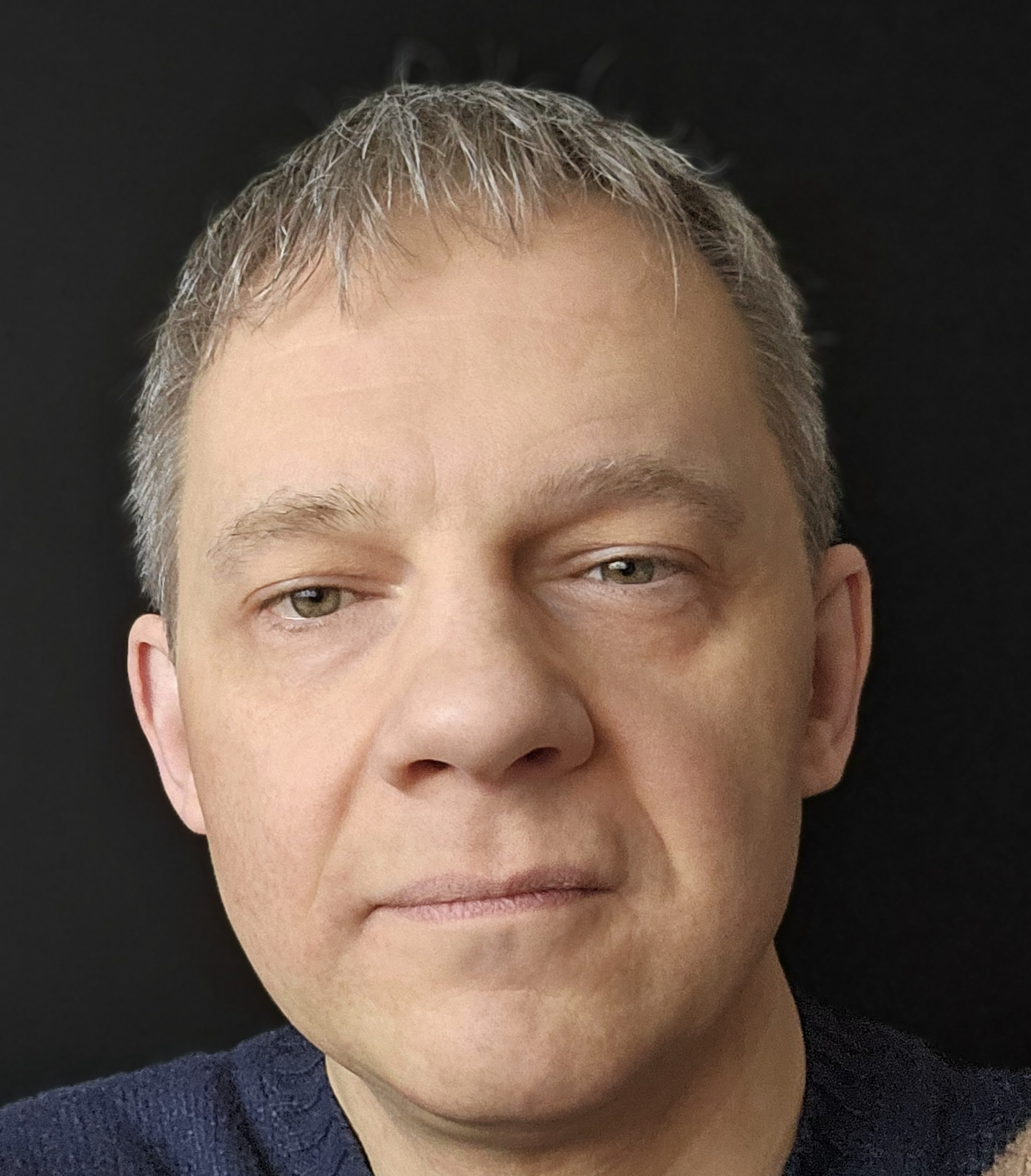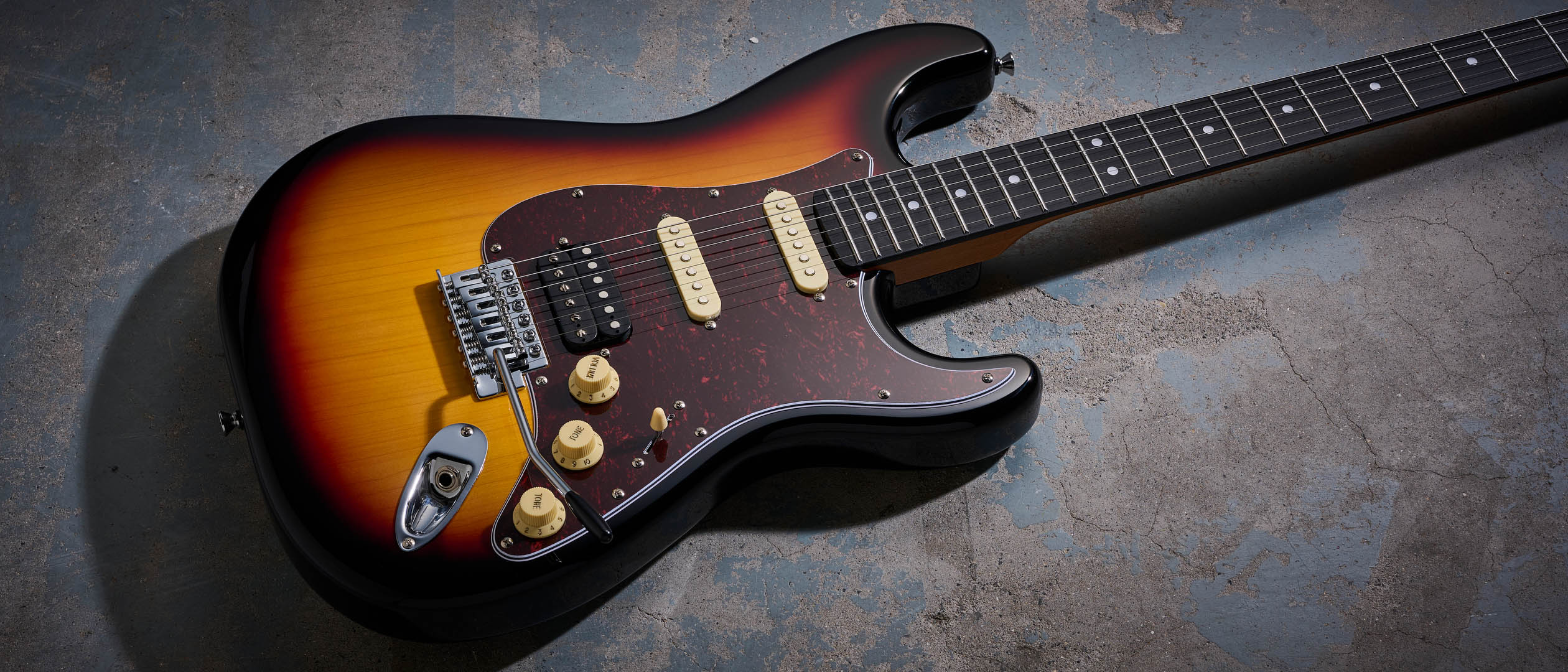John 5 shares his love of instrumental guitar music and names his favorites
Lyrics? Where John 5 is taking the electric guitar, we don’t need any lyrics. Besides, as the Rob Zombie guitarist admits, oftentimes he can’t remember them anyway

Guitar instrumentals have supplied some of music’s most evocative moments. Guitar Techniques regularly asks top guitarists for their take on the lyric-less genre, and here we have John 5 – solo artist, guitarist for David Lee Roth and Rob Zombie, and master of the Fender Telecaster – waxing lyrical on his favorite instrumentals.
What is it about guitar instrumentals that appeals to you?
“I think it started with Eruption. Hearing that guitar solo. Then I would listen to other things like Roy Clark or Chet Atkins. And I was like, ‘Wow, there's no singer.’ And I was so impressed by the fact that these were popular songs that had no singers. Another one is Frankenstein, by Edgar Winter, things like that. I was so taken aback by that. And I think that's what really started it with guitar instrumentals for me.”
What can an instrumental provide that a vocal song can’t?
“I would say it’s much more difficult to get something across with just an instrumental song, but there's so many songs that have such amazing emotion and such incredible feel. It's very hard to describe – it's like trying to describe a colour. But to be honest, I don't really listen to a lot of lyrics.
“A lot of people memorise lyrics and they can sing them. I always listened to the music. Of course, I know the words to the choruses, but I don't memorise all the verses and bridge. I kind of just listen to the music. Sometimes Rob [Zombie] will ask me, ‘Hey, what's the lyric in this one verse, I forget.’ And I’m like, ‘I don't know.’ So that's how much I really concentrate on the music.”
Are there any tendencies you like to embrace or avoid (rhythms, harmony, playing approach, tones)?
Get The Pick Newsletter
All the latest guitar news, interviews, lessons, reviews, deals and more, direct to your inbox!
“What I’m trying to embrace when doing an instrumental song is trying to come up with a good hook. I'm trying to come up with a good riff and some really cool, interesting guitar solos.
“I try to make it interesting for the listener. I always put myself in the category of the listener and say, ‘What would I want to hear here?’ And that really helps me a lot because I'm like, ‘Okay, cool. I need a good hook. And I want some really cool flashy guitar stuff.’ And that approach has been working out really well for me.”
How useful is studying a vocalist's approach for guitar melodies?
“I really like to listen to the melodies of a vocalist. I think it's really important. I've covered many songs such as Welcome to the Jungle, or Beat It, or Enter Sandman, and I try to get those melodies so exact because they're some of the greatest songs ever written. And I don't want to change that. So I always try to keep it how it was written. The melody is so imperative and I try to always keep that true.”
How do you start writing one; is there a typical approach or inspiration for you?
“This is a great question. I guess it’s whenever inspiration hits. Like last night, for example, I was playing some Django Reinhardt gypsy jazz style guitar playing. And I thought to myself, ‘Wow, this is a really cool hook. And maybe I'll try to make a song out of something like this.’
“So I guess it's whenever inspiration hits you, you have to run with it. And that's exactly what happened to me last night. So either it's a lick, or it's a riff but whenever the inspiration hits, I try to go with it as quickly as possible.”
What do you aim for when your performance is centre stage as it is when playing an instrumental?
“I want to put on a good show. I want to have the crowd entertained with a great production, cover songs, things people can relate to. I also like to use different instruments – mandolin, things like that. Light-up guitars really put on a good show and I try to do that with the music as well. I just like to keep people on their toes.”
Many vocal songs feature a guitar solo that starts low and slow then finishes high and fast. Is this useful for developing pace and dynamics over an instrumental's duration?
“I think, to be honest, I always like things on 10. So, sometimes I'll start out slow and fast. But most of the time, when there's a guitar solo, I just seem to start out fast and then go a little faster. I don't know if that's the right thing to do, but it's what I usually do.”
What type of guitar tone do you prefer for instrumentals?
“I like to have the tone very dry when I'm doing instrumental songs. I don't like to have a lot of delay or reverb. I don't like to use a lot of effects because I always think it just gets in the way a little bit – I want it as clean as possible. And it's really worked for me. I like to hear every note very, very clearly. So that's what I usually do when recording my instrumental parts.”
Do you have favourite keys or tempos?
“I usually like to write in standard tuning, meaning A=440. I don't like to tune down. I don't like to do any of that stuff. I just like to have a regular guitar that is tuned to standard tuning.
“Don't ask me why – I guess it's just kind of old school. And I like to write in 4/4 time. Because, again, I want people to come to the shows or listen to the songs and not be confused. I don’t want to confuse people with odd time signatures. So I usually like to just keep it 4/4.”
Do you find minor or major keys easier or better to write in?
“I usually like to write in a minor key for a heavier song. But if I'm doing a country style song or a western swing style song, 90 percent of the time it's in a major key. That has been what has been working for me.”
Do you have any favourite modes?
“I guess it depends on what the song is calling for. But I like Phrygian mode if I was going to have to pick one. I like the diminished scales. I like the flat five, things like that, but I would say a Phrygian mode is a lot of fun for me.”
What about modulations into new keys?
“I’m not a big fan of modulations. Of course, it depends on the song. That's more of a pop, adult contemporary type of thing, which I don't do much of in my instrumental work, but I think obviously works amazingly in those genres of music.”
Do you view the backing band in a different way than you would on a vocal song?
“I look at a backing band as very different with instrumental compared to a vocal. I really like it when I have my instrumental band. I really like them to play a lot, because you're going there to see musicianship. You're going there to see that, so I like them to show off the drums and the bass. But with a vocal band, you don't want to step on the vocalist, so the backing band is a lot more tame and not as busy.”
What are your views on harmonising melodies? And do you do it?
“I love harmonising melodies with instrumental songs. I don't get to do it that much because I play live and I'm the only guitar player, and also I like to have things sound just like they are on the record when I play live. But I really, really love hearing harmonising melodies in instrumentals.”
What three guitar instrumentals would you consider iconic, or have inspired you?
“Surfing With The Alien, by Joe Satriani. Great groove. Great hook. And just an unbelievably perfect instrumental song in my eyes.
“The Audience Is Listening, by Steve Vai. That song just has everything in it. It's just raw. It's so well produced. So well performed, written and played. It has everything. There’s not really an arrangement, it's just pure, beautiful chaos to me.
“The last one, I would say Far Beyond The Sun, by Yngwie Malmsteen. Incredible. It's either that or Trilogy, by Yngwie Malmsteen. I love those songs. They still inspire me today.”
- Sinner is out now via Big Machine.

Jason Sidwell (BA Hons, MA, ALCM) was editor of Guitar Techniques, is senior tuition editor for Guitarist and has written/edited over 25,000 printed articles since 1998. He is an advisor/guest tutor for UK music academies, a director/tutor for the International Guitar Foundation (IGF) plus author of How to Play Guitar Step by Step (Dorling Kindersley) and tutorials for The Guardian and Observer. His unique Guitar Day teaching events have been running for over a decade. He is also a busy classical guitarist and theatre musician, has recorded with musicians such as Steve Morse, Paul Gilbert, Andy Timmons and Marty Friedman and has a broad cliental for studio guitar work.
“My guitar tech ran in and said, ‘Hey, you want to meet Pete?’ I was too scared”: The Smithereens’ love affair with The Who goes way back – yet when guitarist Jim Babjak got the chance to meet Pete Townshend, he turned it down
“Every tour was the best I could have done. It was only after that I would listen to more Grateful Dead and realize I hadn’t come close”: John Mayer and Bob Weir reflect on 10 years of Dead & Company – and why the Sphere forced them to reassess everything

![John Mayer and Bob Weir [left] of Dead & Company photographed against a grey background. Mayer wears a blue overshirt and has his signature Silver Sky on his shoulder. Weir wears grey and a bolo tie.](https://cdn.mos.cms.futurecdn.net/C6niSAybzVCHoYcpJ8ZZgE.jpg)

![A black-and-white action shot of Sergeant Thunderhoof perform live: [from left] Mark Sayer, Dan Flitcroft, Jim Camp and Josh Gallop](https://cdn.mos.cms.futurecdn.net/am3UhJbsxAE239XRRZ8zC8.jpg)






